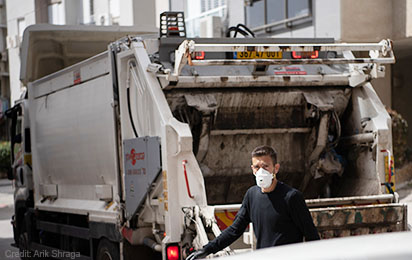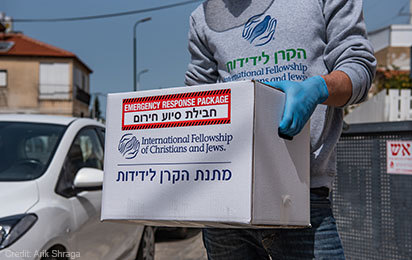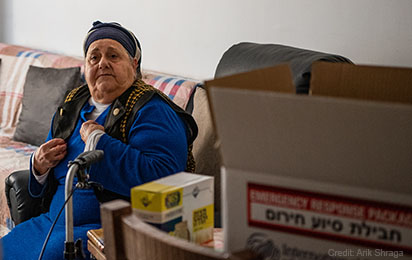Coronavirus Response
What is the COVID-19 Coronavirus?
According to the World Health Organization (WHO), COVID-19 or coronavirus was first identified in December 2019 as a “pneumonia of unknown cause” in Wuhan, China. On January 30, 2020, WHO declared COVID-19 an outbreak, and on March 11, 2020, WHO characterized it as an official pandemic. As of October 2020, COVID-19 has spread to 200 nations and territories with 40,000,000 confirmed cases causing over 1,000,000 deaths.
COVID-19 is a novel coronavirus or, as the Centers for Disease Control and Prevention (CDC) explain, “a new coronavirus that has not been previously identified.” Similar to known coronaviruses like SARS (Severe Acute Respiratory Syndrome) and MERS (Middle East Respiratory Syndrome), COVID-19 presents with common flu symptoms such as a fever. The disease is highly contagious and transmitted through coughing and sneezing by people in close contact.
An early study showed that 80% of known cases are mild to moderate, usually beginning with a fever before progressing to the signature dry cough and shortness of breath. Recovery can happen at home after a few days and does not usually require hospitalization. Severe cases often lead to pneumonia which in itself is life-threatening, and can lead to secondary bacterial infections further increasing the risk.
The mortality rate for COVID-19 is relatively low (less than 3%) compared to similar diseases like SARS and MERS. However, it spreads much more easily and is significantly more dangerous to the elderly. For those under 40, the mortality rate is less than 0.2%, but for those over 80, the rate increases to 15% or higher. According to the CDC, those with chronic medical conditions like heart disease, diabetes, and lung disease are also more at-risk.
The greatest concern with the COVID-19 coronavirus is not the mortality rate per se, but the rate of infection, and the fact that many people can be unwitting or mildly affected carriers. COVID-19 has captured the world’s attention because it is both extremely contagious and because it has a hospitalization rate nearly 10 times that of the seasonal flu, giving it the potential to overwhelm national healthcare systems. That being said, South Korea has shown that by taking the proper precautions of extensive testing, quarantining, and social distancing, the pandemic can be contained (both the first wave in March and the second wave in August were quickly brought under control).
COVID-19 in Israel

The first case of COVID-19 in Israel was confirmed on February 21, 2020. Within a month, the virus spread to over 250 confirmed cases. Like many other nations, Israel is combatting the virus through foreign arrival quarantines, business and school closures, and limited social gatherings of 10 people or less.
These efforts quickly quelled the spread of the virus, and by May 2020, Israel averaged fewer than 100 new cases per day. However, cases steadily increased as the nation reopened, leading to a second lockdown ahead of Rosh Hashanah. By the end of September, Israel averaged over 5,000 new cases per day and had one of the highest infection rates in the world (over 3.2% compared to the U.S. at 2.5%).
According to The Jerusalem Post, Israeli hospitals were already dangerously low on staff, beds, and supplies before the pandemic. By September, overcrowding was threatening to expand emergency rooms to hotels and parking lot tents according to one hospital director. Furthermore, coronavirus response has forced some hospitals to either shut down entire departments or turn to philanthropies for additional funding to combat the virus.
Like many nations, the COVID-19 pandemic has affected Israel’s economy as well as the country’s public health. According to the Geocartography Institute, 40% of Israelis are having difficulty paying for basic expenses. Unemployment surged, a fifth of Israelis lost half or more of their household income, and more than 14% lost all income. Elderly citizens who depended on soup kitchens were especially affected during lockdowns when businesses were forced to close.
COVID-19 Emergency Fund

To address concerns with both a taxed healthcare system and a vulnerable elderly population, the Israeli government and NGOs partnered with the International Fellowship of Christians and Jews (The Fellowship). As the largest provider of humanitarian aid in Israel, The Fellowship is a trusted non-profit with decades of experience supporting the nation’s infrastructure and needy population segments.
Since 2014, The Fellowship has supported 15,000 impoverished elderly every year with basic needs like food and medicine, as well as other emergency needs. It has also invested over $17 million in equipment and renovations to hospitals, especially those located in the periphery, through projects ranging from additional beds to MRI machines to fortified operating rooms.
In cooperation with Israel’s Ministry of Health and other non-profit partners, The Fellowship announced an emergency fund on March 14, 2020 to address the state’s needs related to COVID-19.
The $20 million emergency fund provided food boxes to 30,000 elderly, emergency medical equipment to 23 hospitals and medical service organizations, and emergency assistance to the Jewish community in the former Soviet Union. Over the summer, food assistance was provided to 40,000 widows, orphans, refugees, and families in Israel, and emergency funds were provided for the Jewish community in Ukraine. Ahead of the High Holy Days, The Fellowship doubled its Rosh Hashanah food assistance to help more than 60,000 families, families of soldiers in Israel, and lone soldiers.
COVID-19 and the Jewish Community

The Fellowship is uniquely positioned to provide for the needs of those at-risk in the Jewish community. With grocery stores anticipating shortages, and people confined to their homes, many elderly in Israel are suffering from despair and isolation.
“This is a very difficult time for me,” said Loti Korituru, an 86-year-old woman who lives alone. “A caregiver usually come three times a week. Because of the crisis, she can’t come. I’m all alone.” Yet the visit from Fellowship staff with a box of essential food lifted her spirits: “This crisis is affecting the entire world and I want to say ‘thank you’ to The Fellowship for taking care of us here in Israel.”
Others, like Esther Amar, see hope in the midst of the crisis. Though Esther is over 80 and living on her own, she said, “This coronavirus is a message from God. People are so busy thinking about themselves and now they have to stop and realize that they should be thinking about others. I want to bless The Fellowship and its donors for caring about me and bringing me this food when I can’t go out. I don’t know how I would survive without you.”
COVID-19 and the Christian Community
As the pandemic spreads around the world, causing layoffs and city lockdowns, Christians are taking similar precautions including live-streaming church services. Yet through all the adjustments individuals are being forced to make in their daily lives, the evangelical friendship with Israel remains strong.
While under home quarantine, Fellowship supporters Thomas and Brenda are continuing their charitable giving. According to Thomas, their daughter is doing their “shopping for them so [they] can stay indoors as [he] has a compromised immune system after some lung issues.” He went on to say that their recent gift “is their gift to those in Israel under mandatory quarantine as well.”
The Fellowship has received comments from many who continue to support Israel amid the challenges they are facing in their daily lives. This includes people like Geraldine who prayed for the volunteers packing the meals for housebound elderly Jews: “Bless these people Lord for caring about the elderly and taking care of them in this time of great need. Surround these workers with your protection and keep them safe.”
Fellowship President and CEO Yael Eckstein credited the Christian community for putting The Fellowship 20% above budget, allowing it to create its multi-million emergency fund: “We are so thankful to our Christian supporters who continue to go above and beyond to help in any way possible. It is because of their generosity that The Fellowship is able to take immediate, meaningful action – like establishing this emergency fund – to protect Israelis during this crisis.”

